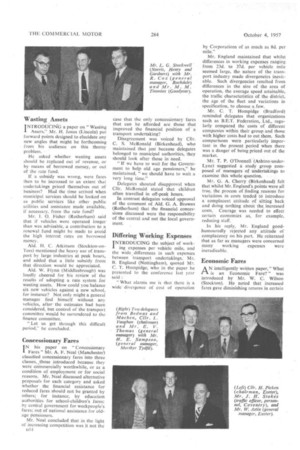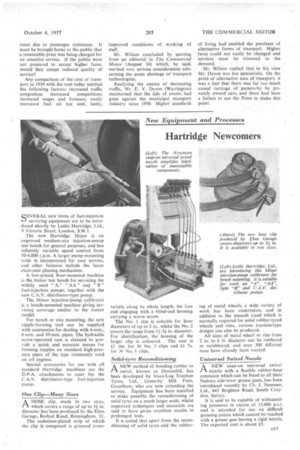Economic Fares A N intelligently written paper," What is an Economic
Page 56

Page 57

If you've noticed an error in this article please click here to report it so we can fix it.
Fare?" was introduced by Mr. W. C. Wilson (Stockton). He noted that increased fares gave diminishing returns in certain
cases due to passenger resistance. It must be brought home to the public that a reasonable price was being charged for an essential service, If the public were not prepared to accept higher fares, would they accept reduced quality of service?
Any comparison of the cost of transport in 1939 with the cost today omitted the following factors: increased traffic congestion; increased competition; increased wages and bonuses; vastly increased fuel oil tax and, lastly, improved conditions of working of staff.
Mr. Wilson concluded by quoting from an editorial in The Commercial Motor (August 16) which, he said, merited very serious consideration erincerning the acute shortage of transport technologists.
Analysing the causes of decreasing traffic, Mr. E. V. Dyson (Warrington) maintained that the tide of events had gone against the municipal transport industry since 1950. Higher standards of living had enabled the purchase of alternative forms of transport. Higher fares could not easily be changed and services must be trimmed to the demand.
Mr. Wilson replied that in his view Mr. Dyson was too pessimistic. On the point of alternative uses of -transport, it was a fact that there was far" too much casual carriage of passers-by by privately owned cars, and there had been a failure to use the Press to make this point.




















































































































